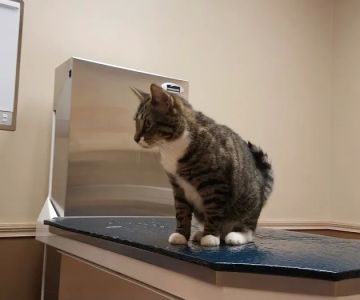- understanding-endocrine-disease-in-pets
- recognizing-symptoms-early
- treatment-options-and-medical-support
- real-life-stories-of-pet-owners
- daily-care-and-lifestyle-adjustments
- building-a-supportive-environment
- professional-guidance-and-trusted-resources
1. Understanding Endocrine Disease in Pets
Endocrine diseases in pets, such as diabetes, hypothyroidism, or Cushing’s disease, affect hormone production and balance. These conditions can significantly impact quality of life if left untreated. Learning how to help pets with endocrine disease live well begins with understanding how hormones influence energy, weight, mood, and overall health.

3165 22nd Ave N, St. Petersburg, FL 33713, USA
See Details2. Recognizing Symptoms Early
2.1 Common Signs to Watch For
Excessive thirst, unexplained weight changes, hair loss, and fatigue are all potential red flags. Catching these symptoms early gives pets a better chance at managing the condition effectively.
2.2 Why Early Detection Matters
Just as in humans, early diagnosis allows for timely interventions that can prevent complications. A simple veterinary check-up and blood test may reveal hormone imbalances that owners might otherwise overlook.
3. Treatment Options and Medical Support
3.1 Medication and Monitoring
Most endocrine diseases can be managed with prescribed medication, dietary adjustments, and routine monitoring. For example, diabetic pets often require insulin shots combined with regular glucose testing.
3.2 Veterinary Expertise
Partnering with a knowledgeable veterinary team ensures that treatment plans evolve as the pet’s condition changes. Adjustments may be needed over time to keep hormone levels stable.
4. Real-Life Stories of Pet Owners
One dog owner shared that her Labrador was diagnosed with hypothyroidism after months of lethargy. With proper medication and diet changes, the dog regained energy and lived happily for years. Another story involved a cat with diabetes whose life improved dramatically once the owner learned to give insulin confidently. These personal accounts prove that pets with endocrine disease can still live well with the right care.
5. Daily Care and Lifestyle Adjustments
5.1 Nutrition and Exercise
A balanced diet tailored to the condition is vital. Gentle, regular exercise supports healthy weight and energy management, particularly for pets with thyroid-related disorders.
5.2 Consistency in Routine
Endocrine diseases often require strict schedules for medication and meals. Owners who maintain consistent routines provide their pets with stability and comfort, reducing stress for both pet and family.
6. Building a Supportive Environment
Helping pets live well goes beyond medicine. Providing a calm home environment, regular grooming, and emotional attention contributes to their wellness. Families that actively involve all members in the care routine often see better long-term outcomes.
7. Professional Guidance and Trusted Resources
Pet owners don’t have to navigate endocrine diseases alone. Reliable resources, professional advice, and supportive products can make a significant difference. Hidden Brook Veterinary provides trusted expertise and tailored care solutions that help pets with endocrine diseases thrive, ensuring they live fulfilling, happy lives despite the diagnosis.










